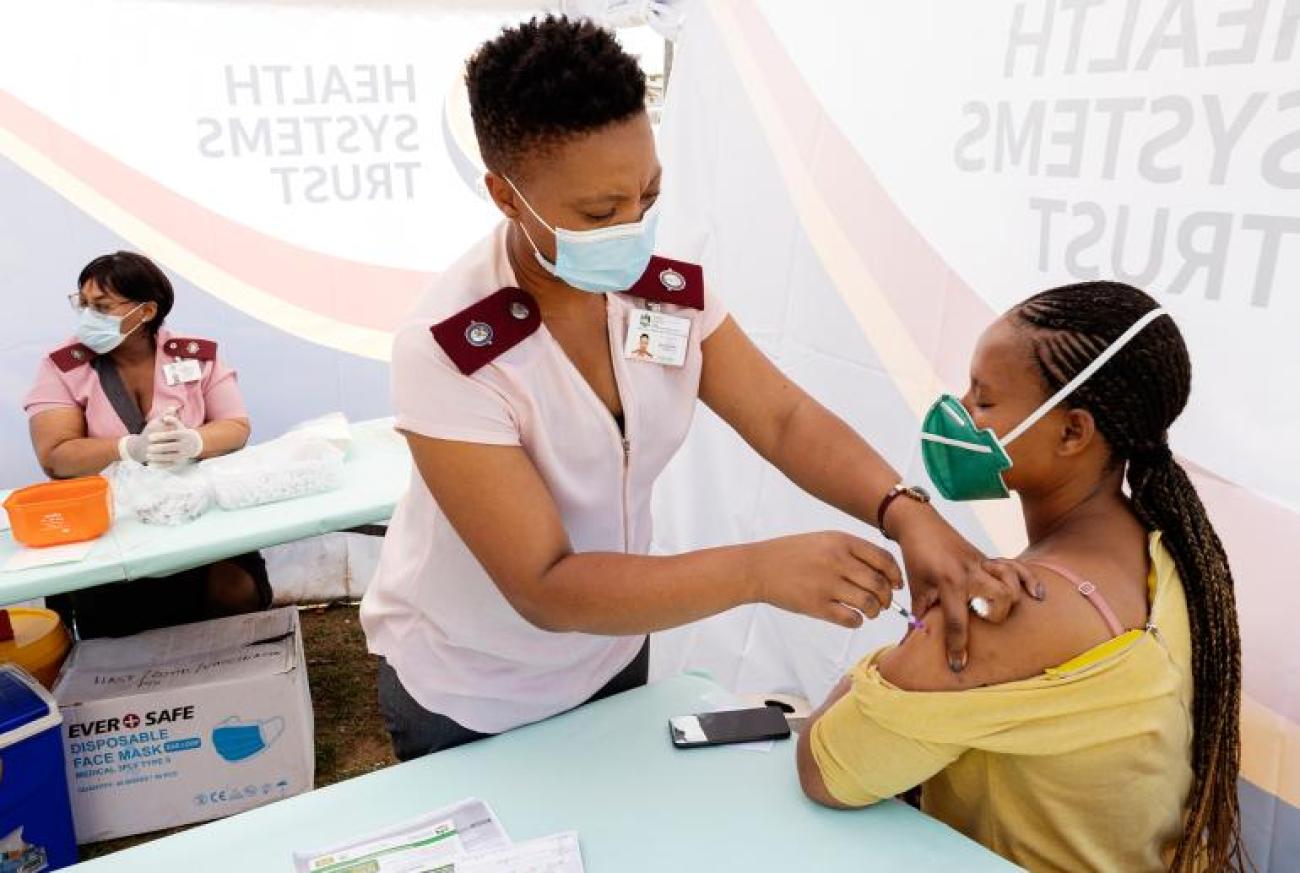More than half of South Africa’s adults – aged 18 and above – have now had at least one COVID-19 vaccine dose, according to the latest data from the National Department of Health.
The milestone was reached 15-months since the first COVID-19 vaccine was administered but despite the progress renewed momentum is needed to reach the 70 per cent target by the end of 2022. Youth vaccination rates are concerning, with only 37 per cent of young people aged 18-34-years having taken a COVID-19 shot and nearly 30 per cent of 12–17-year-olds.
“We have reached a critical stage in the COVID-19 vaccination roll-out,” said Toby Fricker, UNICEF South Africa Chief of Communication. “The challenge now is to further increase coverage by encouraging and actively engaging young people in the COVID-19 vaccination roll-out,” added Fricker.
A UNICEF U-Report poll in August 2021 showed that 86 per cent of youth, aged 15-24-years, think the COVID-19 vaccine is important for their health to some degree but only 55 per cent would get vaccinated. While progress has been made, barriers slowing vaccination uptake still exist. These include not knowing where to go, concerns over the safety and efficacy of vaccines, as well as cost and time in accessing health facilities. Mis-disinformation online and offline also influence young people.
“Vaccination provides the best protection from hospitalisation and death,” said Fricker. “That’s why this milestone is very welcome because the majority of adults in South Africa have taken the decision to better protect themselves from the virus,” Fricker added.
UNICEF South Africa works with the National Department of Health (NDoH) and provincial departments to rollout COVID-19 and routine childhood immunizations, including through cold chain management support and risk communication and community engagement. This includes:
- Cold chain system strengthening through equipment procurement and electronic inventory management, as well as technical support to provincial cold chain systems with consultants embedded in the NDoH.
- Vaccine management training targeting frontline vaccinators and logisticians.
- Vaccine demand creation through the Zwakala campaign and other initiatives using multimedia content and social mobilisation, reaching more than 20 million people.
- Community engagement through the ‘Truck’ – a multi-media messenger on wheels reaching almost 2 million people, alongside social mobilisation efforts and pop-up vaccination sites.
- More than 500 UNICEF youth volunteers assisting the elderly with vaccine information and registration, helping some 50,000 people.
- Youth-led community radio programmes reaching more than 800,000 people in marginalised communities, some 74 per cent of listeners surveyed reported shifting their attitudes to decide on vaccination.
The focus now is on 29 districts identified by the NDoH as having particularly low vaccination coverage.
UNICEF partners on the COVID-19 vaccination response include the South African Red Cross Society (SARCS), Children’s Radio Foundation, World Vision, Heartlines, Oak Foundation, Community Media Trust and other community-based organisations.
UNICEF’s national COVID-19 and routine childhood vaccination efforts are made possible thanks to the generous support of donors including Cotton On, Governments of Germany and Japan, and ACT-A funding.





